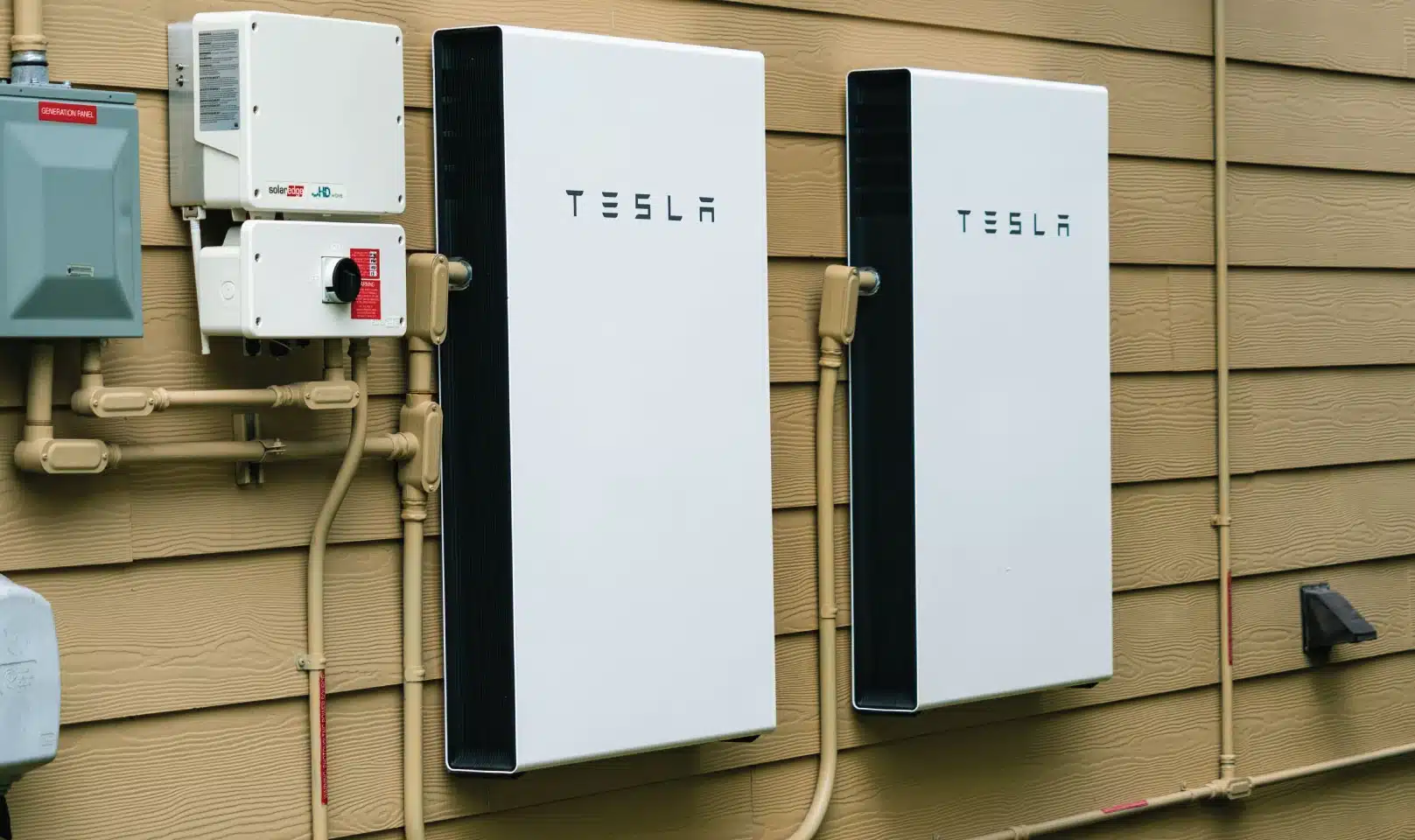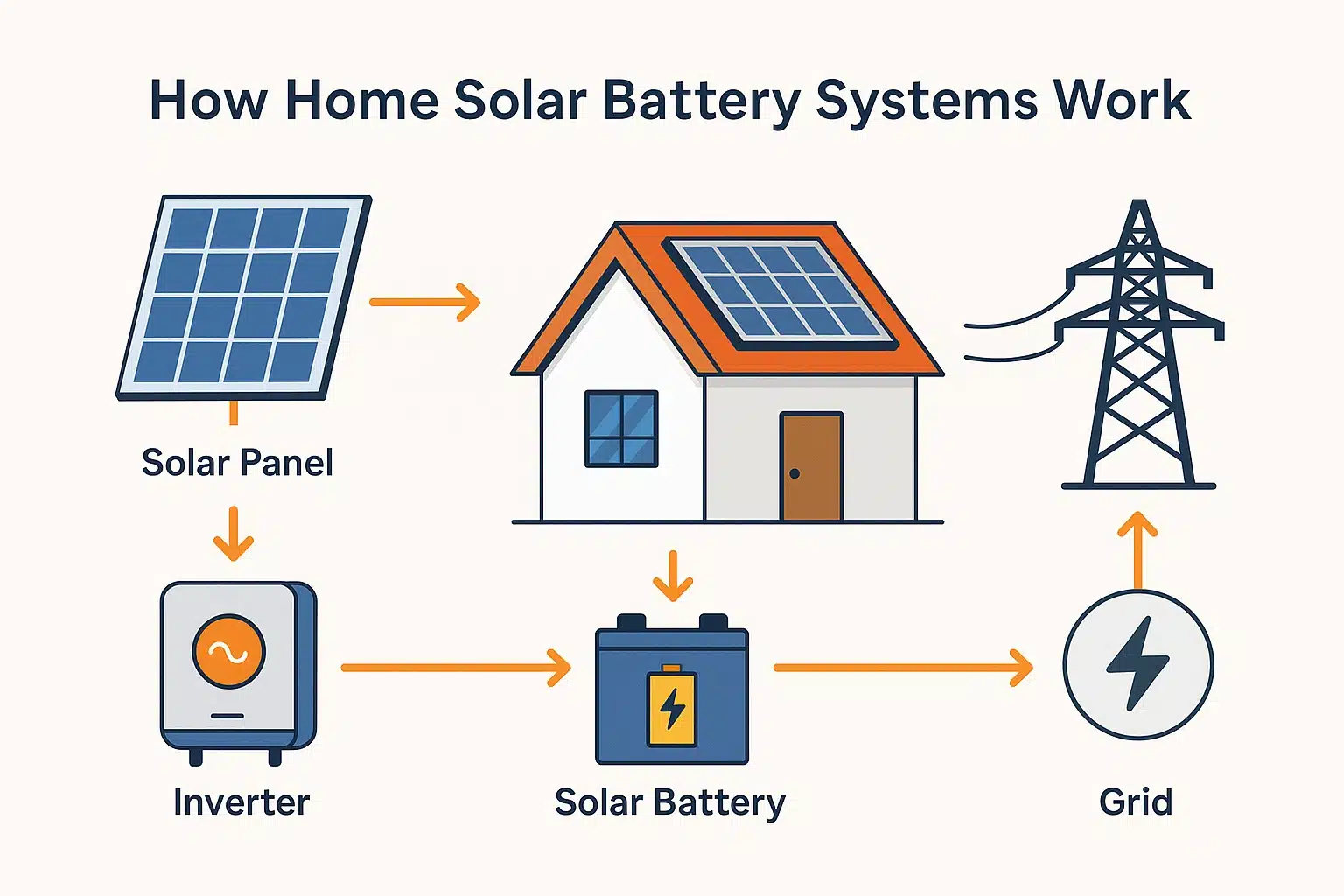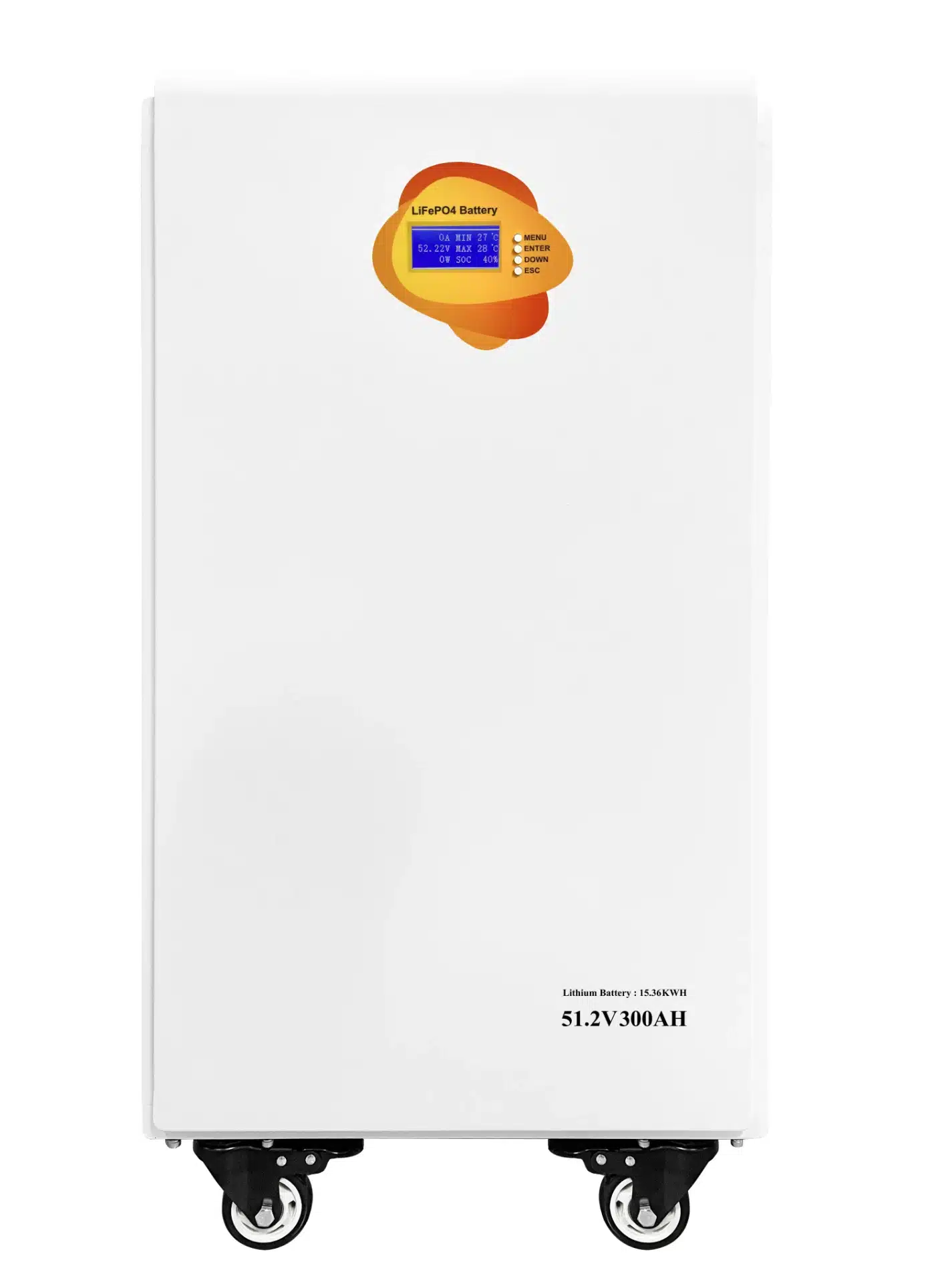As electricity costs continue to rise and power grids face increasing instability, more homeowners and professionals are turning to solar battery storage as a practical solution.
A solar battery for home use allows households to store excess solar energy generated during the day and use it at night or during blackouts.
Whether you’re a homeowner exploring energy independence or an installer looking for the right product for your clients, this guide offers everything you need to know about sloar battery for home in 2025.

With recent advances in lithium battery technology and government incentives for renewable energy adoption, the market for solar battery storage is expected to grow significantly in the next few years.
As a result, it’s crucial for both residential users and industry professionals to stay informed about the options, costs, and practical considerations involved in adopting a solar battery system.
1. What Is a Solar Battery for Home Use?
A solar battery stores energy produced by your home’s solar panels, making it available for use when the sun isn’t shining.
It allows homeowners to maximize their use of solar energy instead of relying on the grid. These batteries are typically installed alongside a solar inverter and a monitoring system to manage energy flow.
Main Functions:
- Store daytime energy for nighttime use
- Provide backup during power outages
- Reduce electricity bills through time-of-use savings
- Increase solar self-consumption rate
The solar battery for home is also a key component in off-grid solar power systems or homes in remote locations, where grid power may not be available or reliable.
In such cases, the battery becomes the main source of energy supply during non-daylight hours.
2. Key Benefits of Home Solar Battery Systems
1. Energy Independence
Rely less on public utilities and enjoy stable power availability even during outages. This is particularly important in regions with frequent blackouts or unstable grids.
2. Lower Energy Bills
Use stored energy when electricity prices are high, saving on time-of-use charges. In some cases, users can also participate in net metering programs to sell excess energy back to the grid.
3. Environmental Benefits
Reduce reliance on fossil fuels and shrink your carbon footprint. Using more solar energy means fewer greenhouse gas emissions, which supports a more sustainable planet.
4. Increased Home Value
Properties with solar battery systems are increasingly attractive to eco-conscious buyers. They also appeal to tech-savvy homeowners interested in smart energy management.
5. Quiet and Low-Maintenance Operation
Unlike traditional fuel-powered generators, solar battery systems are silent and require minimal ongoing maintenance.
3. How A Solar Battery for Home Work
During daylight, your solar panels generate electricity. Any excess power not used by your home can be stored in the battery instead of being sent back to the grid.
At night or during grid failures, your battery kicks in to power your home.

Two System Types:
- Grid-tied with backup: Connected to the grid but provides backup during outages
- Off-grid: Completely independent from the utility grid
Some advanced systems also support hybrid configurations, which combine the benefits of both setups. Hybrid inverters allow flexible energy management, prioritizing self-use and enabling smart load shifting to maximize cost savings.
4. Types of Solar Battery for Home Technologies
| Battery Type | Lifespan | Safety | Cost | Depth of Discharge |
|---|---|---|---|---|
| LiFePO4 (LFP) | 10-15 years | High | Medium-High | 80–90% |
| Lithium-ion (NMC) | 7–10 years | Medium | Medium | 70–85% |
| Lead-acid | 3–5 years | Low | Low | 50–60% |
| Flow Battery | 10+ years | High | High | 100% |
LiFePO4 batteries are becoming the standard for home energy storage due to their safety, longevity, and performance.
Battery selection should consider not just the price but also the performance in your specific climate, daily energy demands, and warranty conditions.
For example, lead-acid batteries may degrade faster in high-temperature environments.
5. How Much Does a Solar Battery for Home Cost in 2025?
Costs vary depending on capacity, brand, and installation complexity. Here’s a general range:
- 5 kWh: $2,000 – $3,500
- 10 kWh: $4,000 – $6,500
- 15 kWh: $6,000 – $9,000
Additional Costs:
- Installation: $500 – $2,000
- Inverter (if not included): $800 – $2,000
- Monitoring software or smart controls: $100 – $500
ROI Tip: With proper usage, a solar battery system can pay for itself in 6–10 years through savings on electricity bills.
Government rebates or tax credits may also be available in your region, which can significantly reduce upfront costs. Be sure to check local incentive programs.
6. Sizing the Right Solar Battery for Your Home
To select the correct solar battery for home, estimate your home’s daily energy consumption and peak usage. For example:
- Small home (1–2 people): 5 kWh
- Medium home (3–4 people): 10 kWh
- Large home (5+ people): 15–20 kWh
Installers should also consider:
- Roof space for solar panels
- Average sunlight hours in your area
- Appliances requiring backup (e.g., fridge, aircon)
- Whether the battery is for full backup or partial usage
You can calculate the battery size using the formula:
Battery Capacity (kWh) = Daily Usage (kWh) × Days of Autonomy × Safety Margin
7. Installation and Maintenance
Installation Steps:
- Site inspection and system design
- Battery and inverter installation
- Electrical and safety checks
- Grid connection (if applicable)
Installation Timeframe: Most residential systems can be installed in 1–3 days, depending on complexity and local regulations.
Maintenance Tips:
- Check battery health via app or control panel monthly
- Keep units in dry, shaded, and well-ventilated areas
- Schedule annual professional inspections
- Ensure firmware/software updates for smart systems
Regular maintenance ensures safety, preserves performance, and upholds the warranty terms.
8. Choosing the Right Supplier or Manufacturer
Whether you’re a homeowner or a professional buyer, consider:
- Certifications: UL, CE, IEC, UN38.3
- Warranty: 5 to 10 years minimum
- OEM/Bulk Support: Available from top manufacturers
- Local Service Network: After-sales support in your region
- Compatibility: Ensure the battery is compatible with your inverter or hybrid system
Looking for a trusted supplier? EcoEchoPower.com offers certified, OEM-ready solar battery solutions tailored for global distributors and installers.
With integrated MPPT, lithium battery management systems, and flexible capacity options, our solutions help clients build complete off-grid or hybrid systems efficiently.

9. Common Questions (FAQ)
Q: How long does a home solar battery last?
A: Most lithium batteries last 10–15 years with proper care. Cycle life ranges from 3,000 to over 6,000 cycles.
Q: Can I add a battery to my existing solar system?
A: Yes, with compatible inverters and some rewiring. Retrofit solutions are available for both AC and DC-coupled systems.
Q: What happens during a blackout?
A: Your battery can provide power automatically if you have a backup-enabled inverter. Essential appliances like lights, Wi-Fi routers, and fridges can continue running.
Q: Is a solar battery worth it if my electricity is cheap?
A: Even in low-cost regions, solar batteries provide blackout protection, stabilize time-of-use rates, and prepare your home for future energy price changes.
Q: Can I monitor my battery remotely?
A: Yes. Most modern systems come with mobile apps or web portals that track performance, energy usage, and health status.
Conclusion
In 2025, solar battery storage is no longer a futuristic upgrade—it’s a smart investment in energy security, cost savings, and sustainability.
With technology maturing and prices becoming more competitive, there has never been a better time to adopt solar batteries for your home.
Whether you’re a homeowner aiming for energy independence or a professional seeking bulk supply for residential projects, solar batteries offer reliable performance and a solid return.
Need help choosing the right battery or planning your installation? Contact us at EcoEchoPower.com for a free quote, product catalog, or expert consultation tailored to your needs.